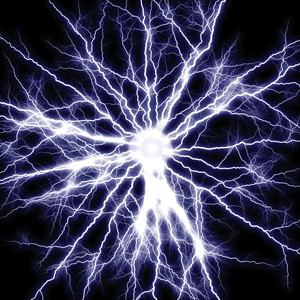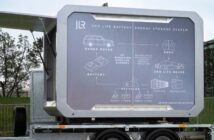In physics, energy is defined as a property of objects, which is transferable through fundamental interactions, and which can be converted in form but not created or destroyed. In comparison, power is the rate of doing work. It is equivalent to an amount of energy consumed per unit of time.
Different forms of energy and power
There are different forms of energy, which include kinetic, potential, thermal, gravitational, electromagnetic, sound, light and elastic.
The form of energy is dependent on the frame of reference, and can be transformed into other forms. For example, potential energy is dependent on the position of the object. However, kinetic energy is the energy required to accelerate an object to a particular speed.
Different forms of power can include human power, optical power and electrical power, which is the rate at which electrical energy is transferred by a circuit.
Energy transformation
Several different devices can be used to convert one form of energy into another. For example, a battery converts chemical into electric energy, a chemical explosion converts chemical energy into kinetic and thermal energy. However, power cannot be converted or transformed.
Measuring energy versus Power
Even though it isn’t possible to directly measure energy, the results can be defined and measured. This process requires using a calorimeter, which measures the heat absorbed or released in chemical reactions or physical changes. The use of a thermometer measures temperature and a bolometer is used to measure the intensity of radiation.
Power is energy per unit of time, so in theory, it can be calculated after measuring the energy used per second. When calculating the real power consumption of an electrical device, it is important to measure the voltage applied and the current consumed, taking into account the power that is dissipated in the circuit.
Units of measurement
Energy is usually measured using the following units:
Joules – A unit of energy, work or amount of heat in the International System of Units. It is equal to the energy which is used when applying the force of one newton through a distance of one metre, or in passing an electric current of one ampere through a resistance of one ohm for one second.
ergs – Short for ergon, is a unit of energy and mechanical work equal to 10−7 Joules. It originated in the centimetre-gram-second (CGS) system of units.
Calories – The approximate amount of energy needed to raise the temperature of one gram of water by one degree Celsius.
Power is measured in Watts, which are Joules or ergs per second. Machines are usually defined by their power rating, the higher the number, the more powerful the machine.
Because the measurement of electricity depends on the interconnectedness of energy, power and resistance, the different units of ampere, watt, volt, and ohm, are often discussed together.
Related articles:
The Energy Output of Different Fuels




